How do Learning Analytics “act” in Education?
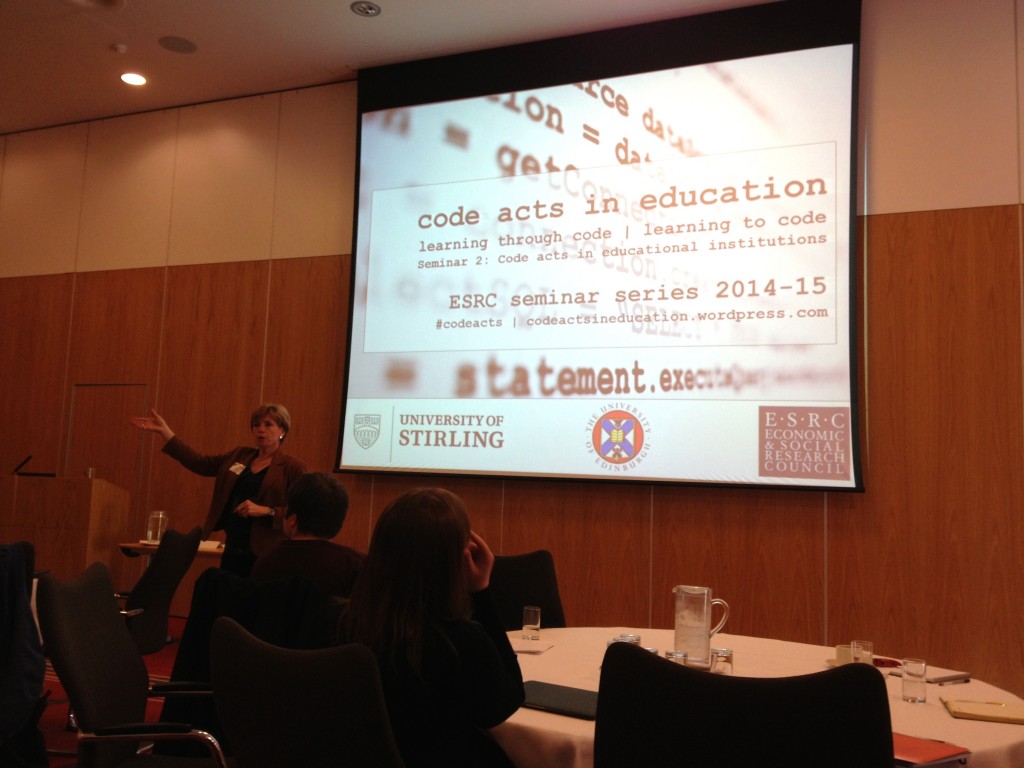
Tara Fenwick opens today’s ESRC Code Acts in Education seminar series , University of Edinburgh.
My slides below [download pdf/pptx + m4a voice recording]
Seminars
Seminar 2: Code acts in educational institutions
Friday 9 May 2014, University of Edinburgh, John MacIntyre Conference Centre, 10am – 4pm
Code Acts in Education_seminar 2 programme
Twitter: #codeacts
Modern educational institutions are increasingly augmented and animated by code. From instructional software to data management tools, the school, college and university have become complex coded environments where everything from teaching to finances is managed, mediated and partly automated by software. The seminar will address key questions about how software and its underlying code creates new modes of educational governance and practice. How does software, its code and algorithms, mediate the data used to govern education? What can educators and learners do to understand the influence of code? How does code transform the space of the classroom? How is code woven through the pedagogies of teachers, and what pre-programmed assumptions about learners and knowledge are translated through coded practices, for example in database-driven learning analytics and networked MOOCs?
Provisional programme:
10.oo Registration
10.30 Welcome & introduction from Dr Sian Bayne & Dr Ben Williamson
10.45 Professor Jenny Ozga, University of Oxford, author of Fabricating Quality in Education: Data and Governance in Europe & director of ESRC-funded project Governing by Inspection. Jenny will examine the extent to which data systems frame knowledge production, distribution and use in governing schooling, and consider the role of software and code in mediating this knowledge.
11.45 Matt Finn, University of Durham, doctoral researcher in the School of Geography. Matt will examine how futures are being imagined and enacted in schools is through the increased production and use of data, mediated through software and managed by data analysts.
12.30 Discussion: How does software shape educational data?1.00 Lunch
2.00 Professor Simon Buckingham Shum, Open University, Assoc. Director (Technology) at the Knowledge Media Institute, co-founder of the Society for Learning Analytics Research, and FutureLearn advisor. Simon will examine how analytics embody educational worldviews.
2.45 Dr Sian Bayne & Jeremy Knox, University of Edinburgh, organisers of E-Learning & Digital Cultures MOOC. Sian and Jeremy will investigate MOOCs as a set of sociomaterial entanglements, in which human beings and technologies each play a part, and will consider the role of algorithms in such entanglements.
3.30 Cabaret table conversations: Are educational institutions now ‘code spaces’?
4.00 Round-up and close
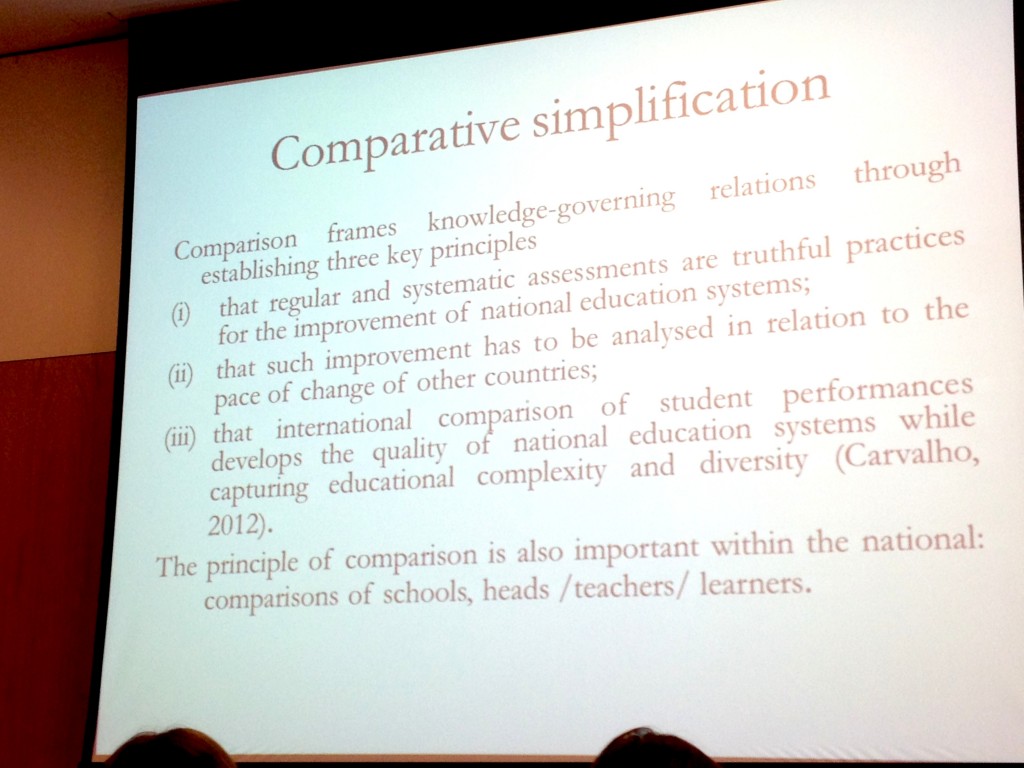
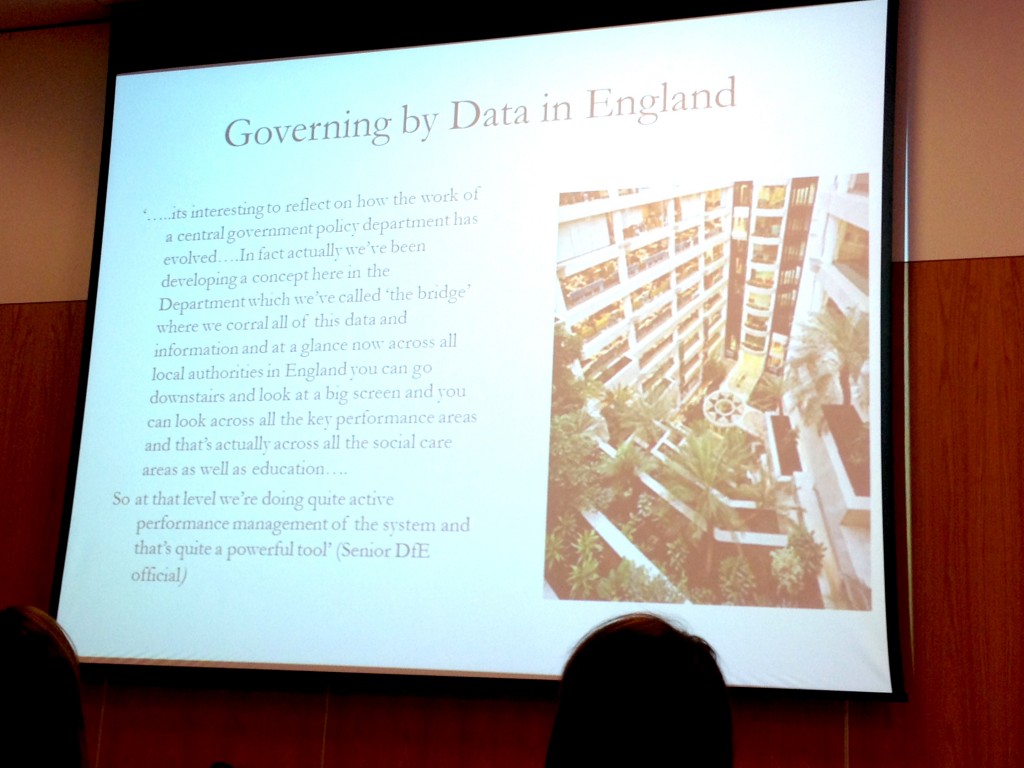
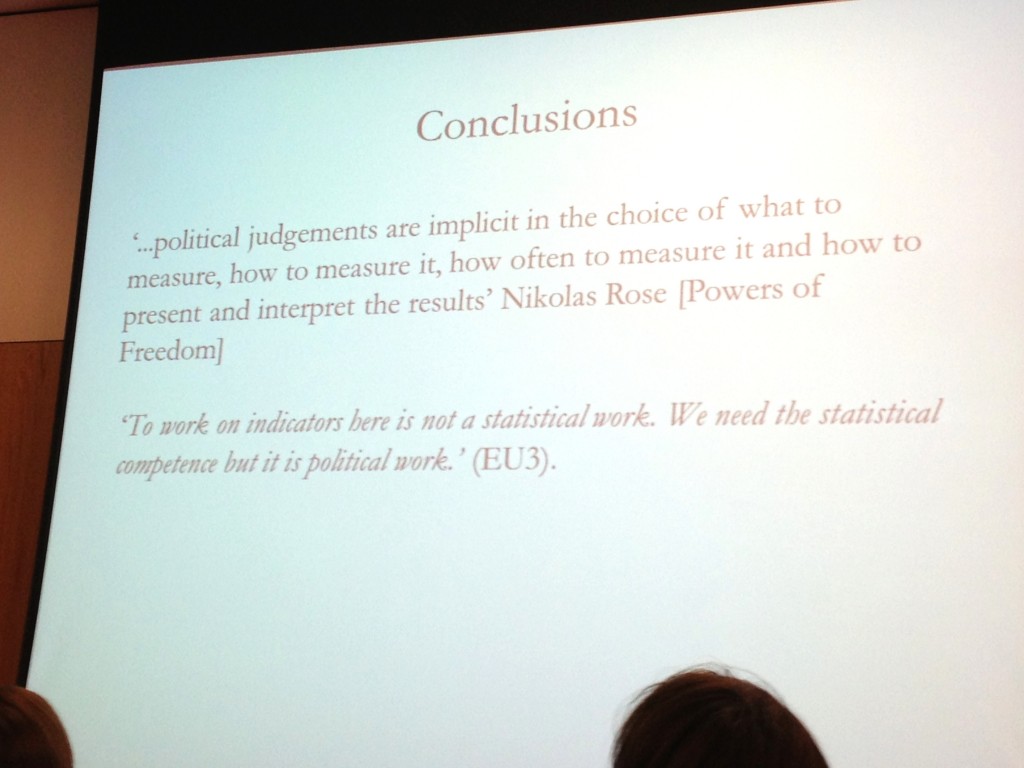
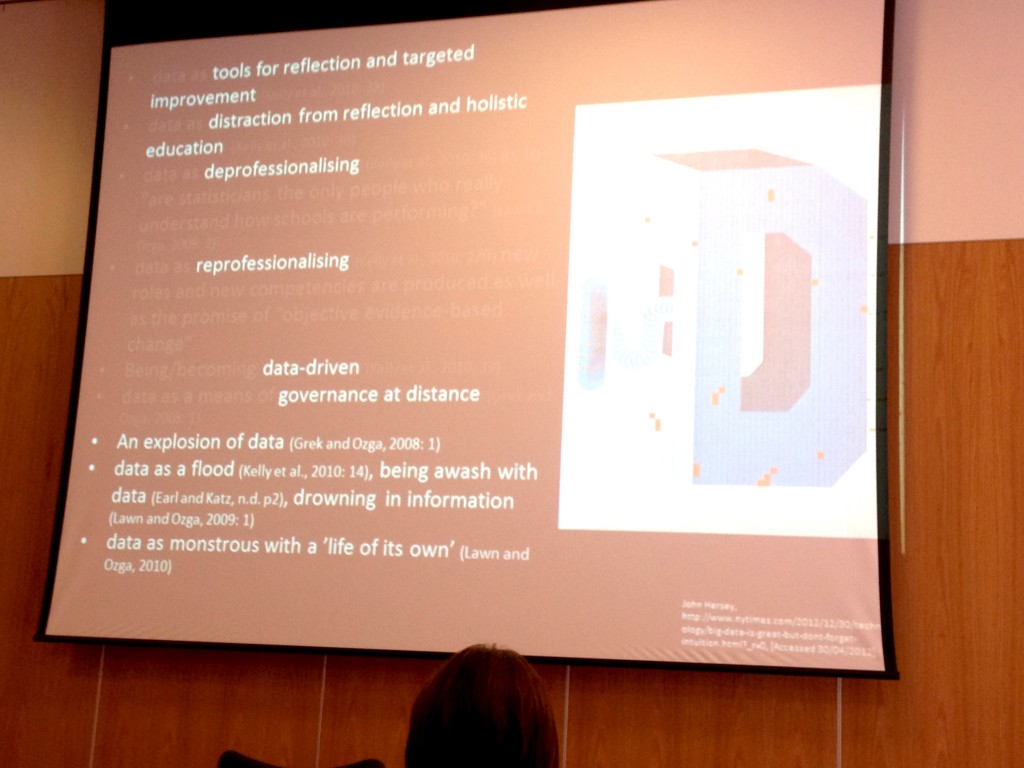
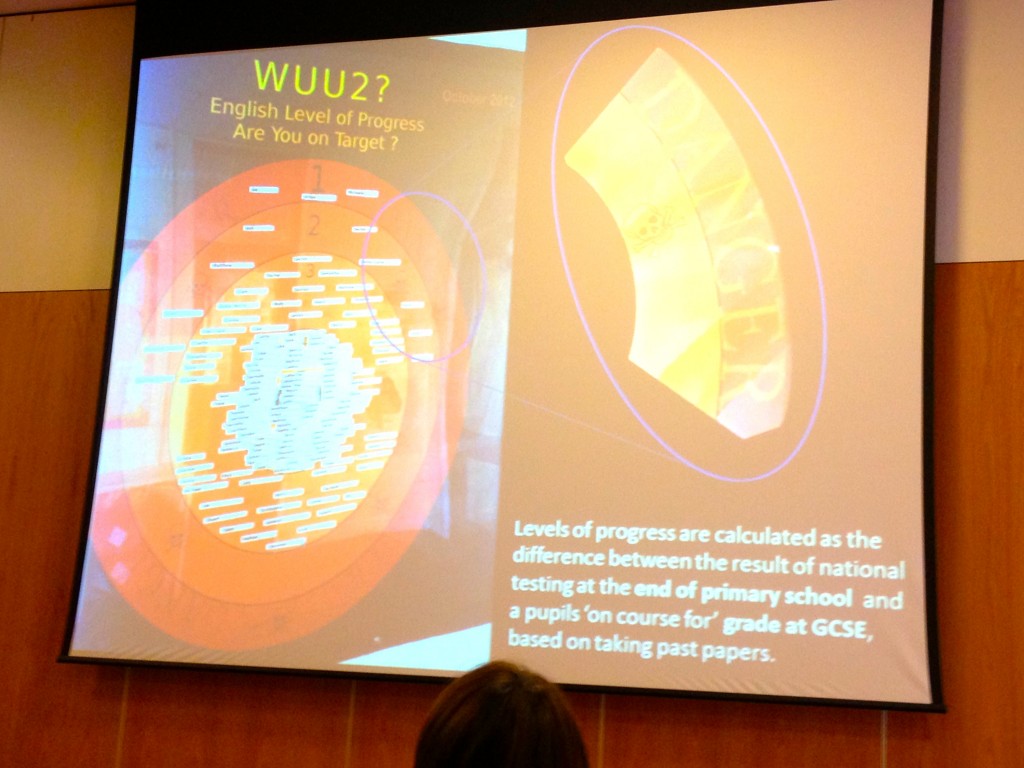
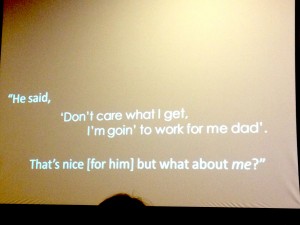
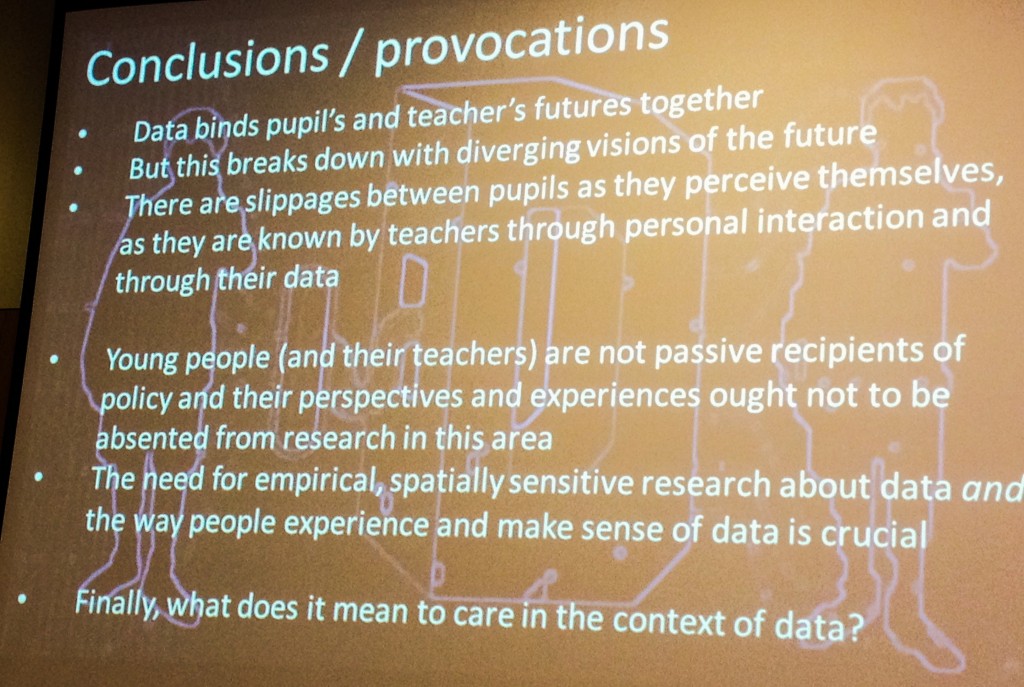
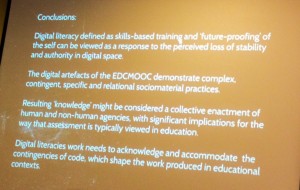
May 30th, 2014 at 12:07 pm
[…] Buckingham Shum’s presentation was concerned with ‘how learning analytics act in education.’ He began with an anecdotal example of the use of Apple’s Siri, to which he asked the […]